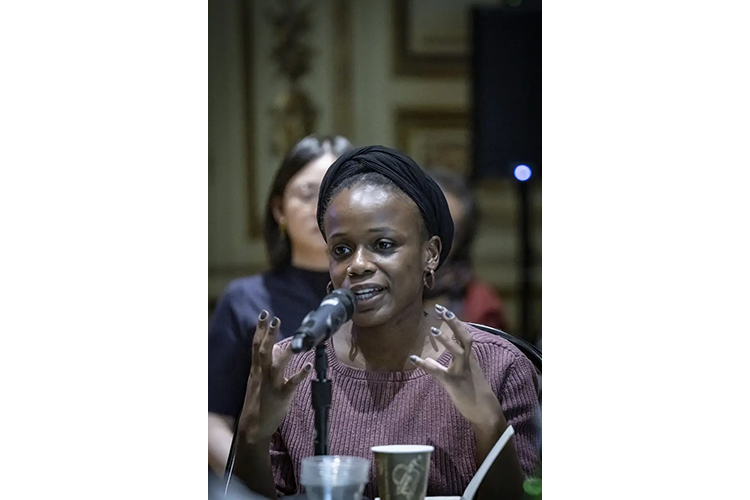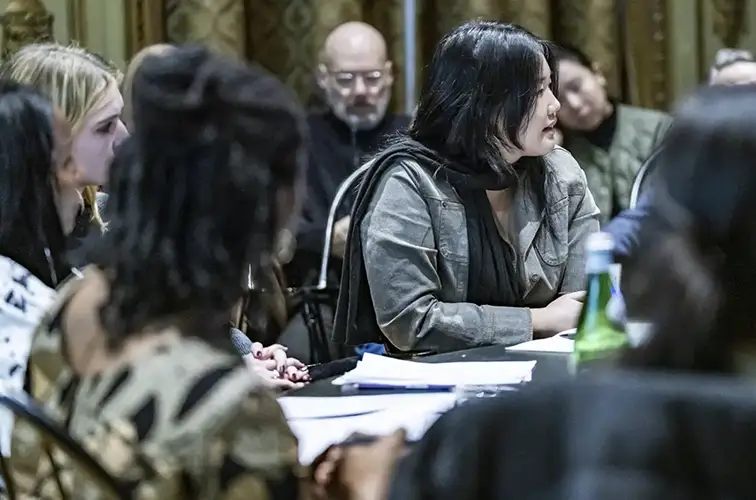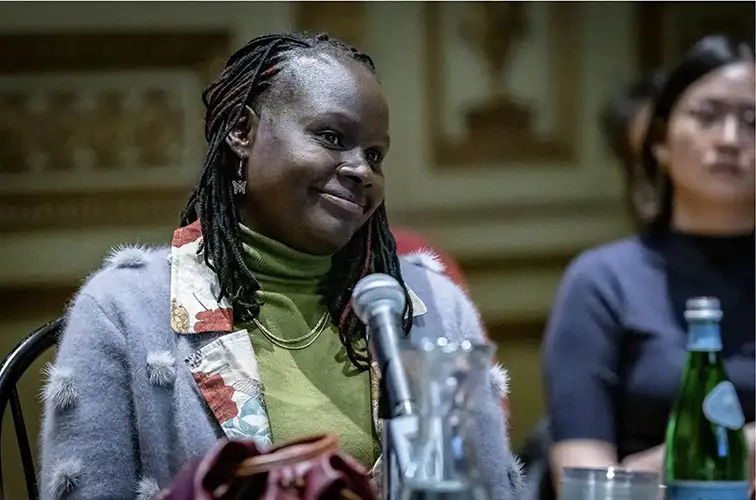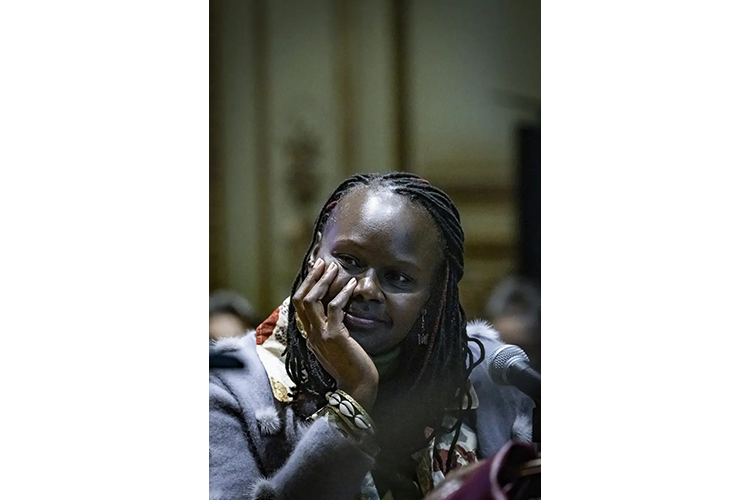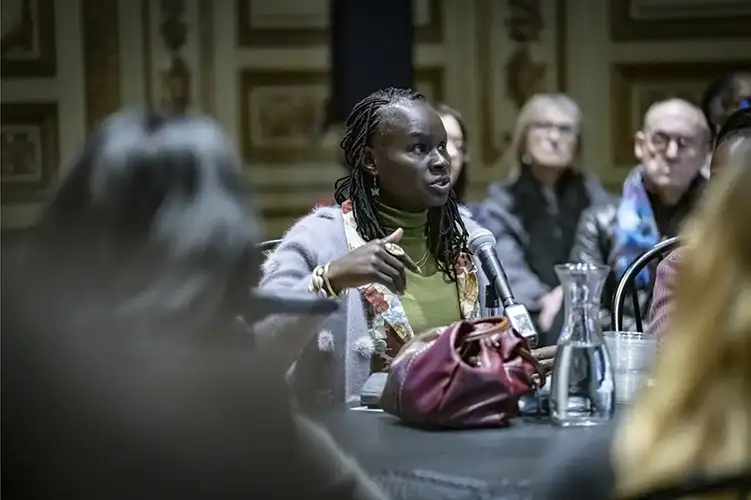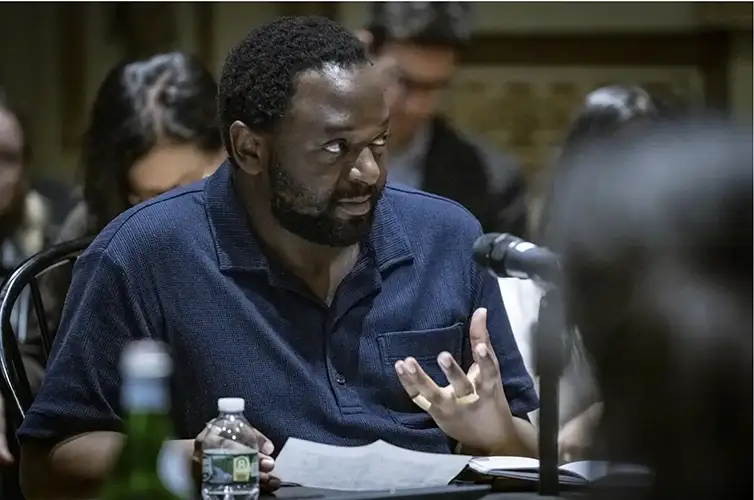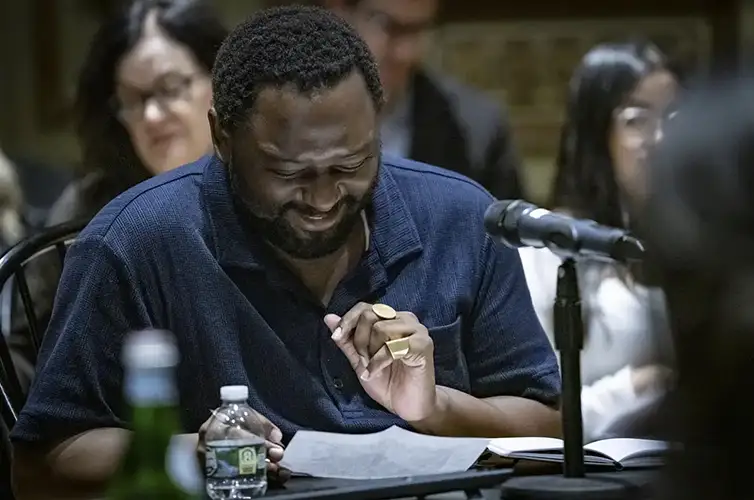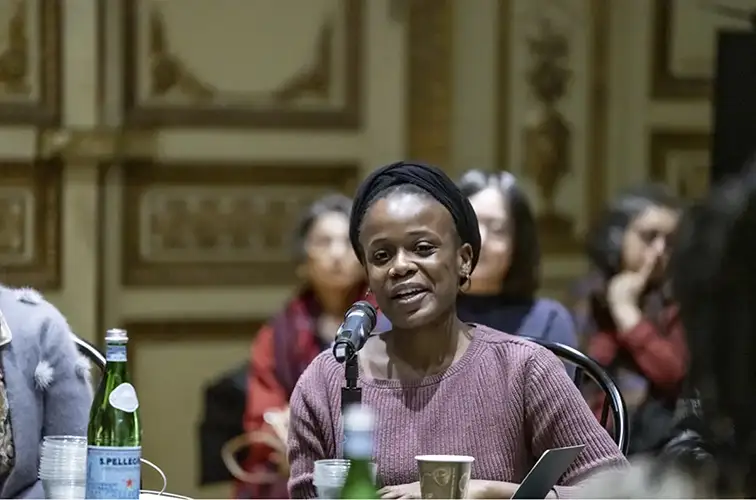Great Hall Exhibition Series Fall 2025
Public Programming
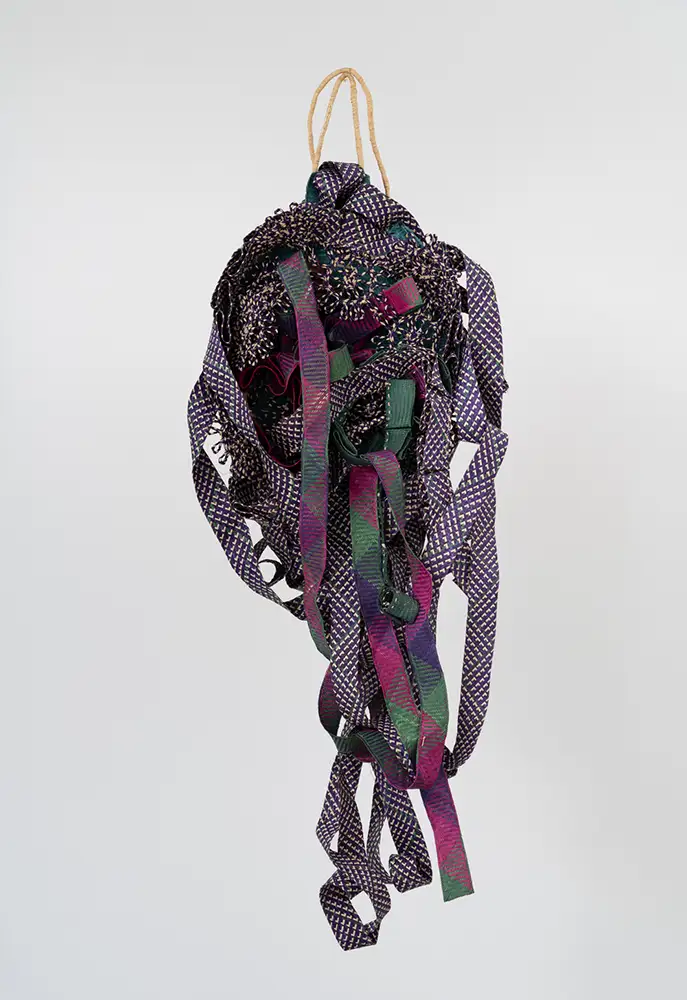
Coiling a New Cycle: A Conversation on Art and Ecology
Monday, November 17 at 6:00pm
The Institute of Fine Arts, New York University
The James B. Duke House, 1 East 78th Street
Advance registration required
On the occasion of the Fall 2025 exhibition, Acaye Kerunen: 1246 Days Around the Sun, the Great Hall Exhibition Program is pleased to present the panel discussion, “Coiling a New Cycle: A Conversation on Art and Ecology,” featuring Acaye Kerunen, Kessie Alexandre, and Serubiri Moses.
Kerunen’s sculptural works are composed of plants from the wetland ecosystems of Nalubaale (Lake Victoria) and the Great Lakes region of East Africa. Building on Kerunen’s body of work—on view from November 12, 2025 to May 22, 2026 at the Institute of Fine Arts—the three speakers will address the intersections of environmental and racial justice, the legacy of colonial extraction, as well as organizing resistance and building alternatives.
The event brings together IFA Great Hall Exhibition artist Acaye Kerunen, whose practice and exhibition anchors the panel; Kessie Alexandre, Assistant Professor of Social and Cultural Analysis at NYU; and Serubiri Moses, a Ugandan curator and author based in New York City. This event is co-sponsored by NYU’s Center for the Study of Africa and the African Diaspora (CSAAD).
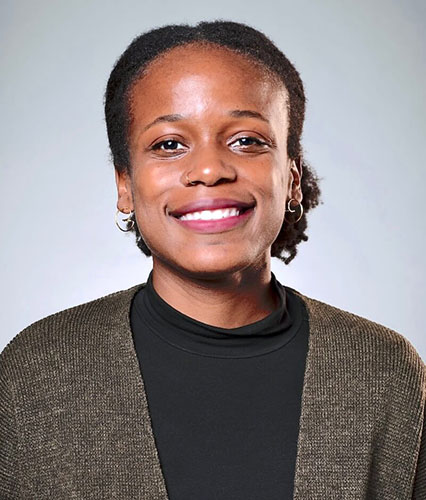
Kessie Alexandre is Assistant Professor of Social and Cultural Analysis at NYU. Specializing in the intersections of race, place, and environment, she holds a MA and PhD in anthropology from Princeton University and BA in anthropology and public health from Johns Hopkins University. Her first book project, Floods and Fountains, is an ethnography of Black environmental organizing against urban water insecurity (chronic flooding, tap water contamination, and waterway pollution) in Newark, NJ. This research was supported by the Mellon Foundation, the American Council for Learned Societies, the Wenner-Gren Foundation, and the High Meadows Environmental Institute and the African American Studies Department at Princeton University. Alexandre’s work can be found in Geoforum, Current Anthropology, Transforming Anthropology, and Environmental History. She is currently developing a project on the intersections of anti-blackness and environmental change with a focus on climate vulnerability in and displacement from the Caribbean.
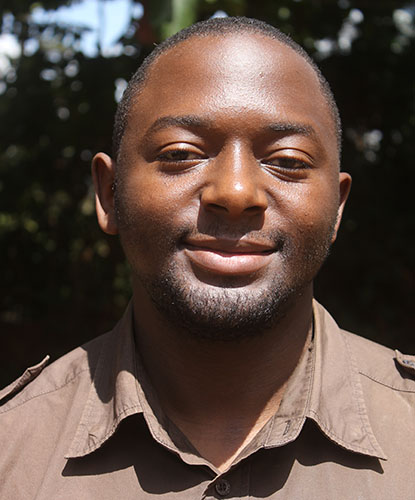
Serubiri Moses is a Ugandan curator and author based in New York City. His writing is primarily concerned with theories of art, and exhibition histories. His exhibitions are rooted in methods of collective teaching, loitering, and listening as an epistemic practice. Since 2019, he has served as part-time faculty in Art History at Hunter College, CUNY, and between 2021-2024, he was visiting faculty at the Center for Curatorial Studies, Bard College. He previously held teaching positions at New York University and the New Centre for Research and Practice, Germany/United States; Dark Study, United States; Digital Earth Fellowship, Netherlands; and delivered lectures at Williams College, Massachusetts; Yale University, Connecticut; University of Pittsburgh, Pennsylvania; The New School and basis voor aktuelle kunst, Netherlands; College of the Atlantic, Maine; and University of the Arts Helsinki. As a curator, he has organized exhibitions at museums including: ICA, Virginia Commonwealth University (2025); MoMA PS1, Long Island City (2021); the Hessel Museum of Art, Bard College, NY (2019); and KW Institute for Contemporary Art, Berlin (2018). He previously held a research fellowship at the University of Bayreuth, received his MA in Curatorial Studies at Bard College, and is an alumnus of the Àsìkò International Art Programme. He is Contributing Editor at e-flux journal where he edits a series of essays on the late curator Okwui Enwezor, and his forthcoming book Judith Namala: A Novella is published by Center for Art, Research, and Alliances.
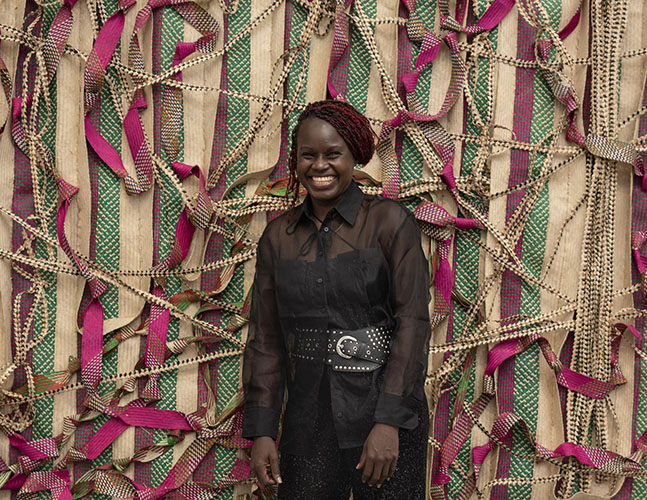
Acaye Kerunen (b. Kampala, Uganda) has a multidisciplinary practice, spanning visual and performance art, sound, film, movement, poetry, curation, activism, and therapy. Her work seeks to disassemble the colonial and patriarchal structures that have long inhibited women’s freedom and artistic expression in East Africa and the Great Lakes region, and she works collaboratively with communities of women across Uganda to produce the handcrafted, woven, and dyed materials in her installations and sculptures. Kerunen was featured in Uganda’s inaugural pavilion at the 59th Venice Biennale alongside artist Collin Sekajugo in Radiance – They Dream in Time (2022) and returned to curate the nation’s pavilion for the 60th edition, WAN ACEL | TULIBAMU | TURIBAMWE | WE ARE ONE (2024). Kerunen has had solo presentations at Afriart Gallery, Kampala (2021), RAM Galleri, Oslo (2023), BLUM, Los Angeles (2023), Galerie Kandlhofer, Vienna (2024), and Pace, London (2024), and has been featured in group exhibitions at Ars Belga, Brussels (2023), and the Barbican Centre, London (2024). Kerunen is also at work on a musical theatre production, I HAVE A DRUM (IHAD), a drum-driven performance celebrating and documenting Ingoma Nshya, the world-renowned Women Drummers of Rwanda.
